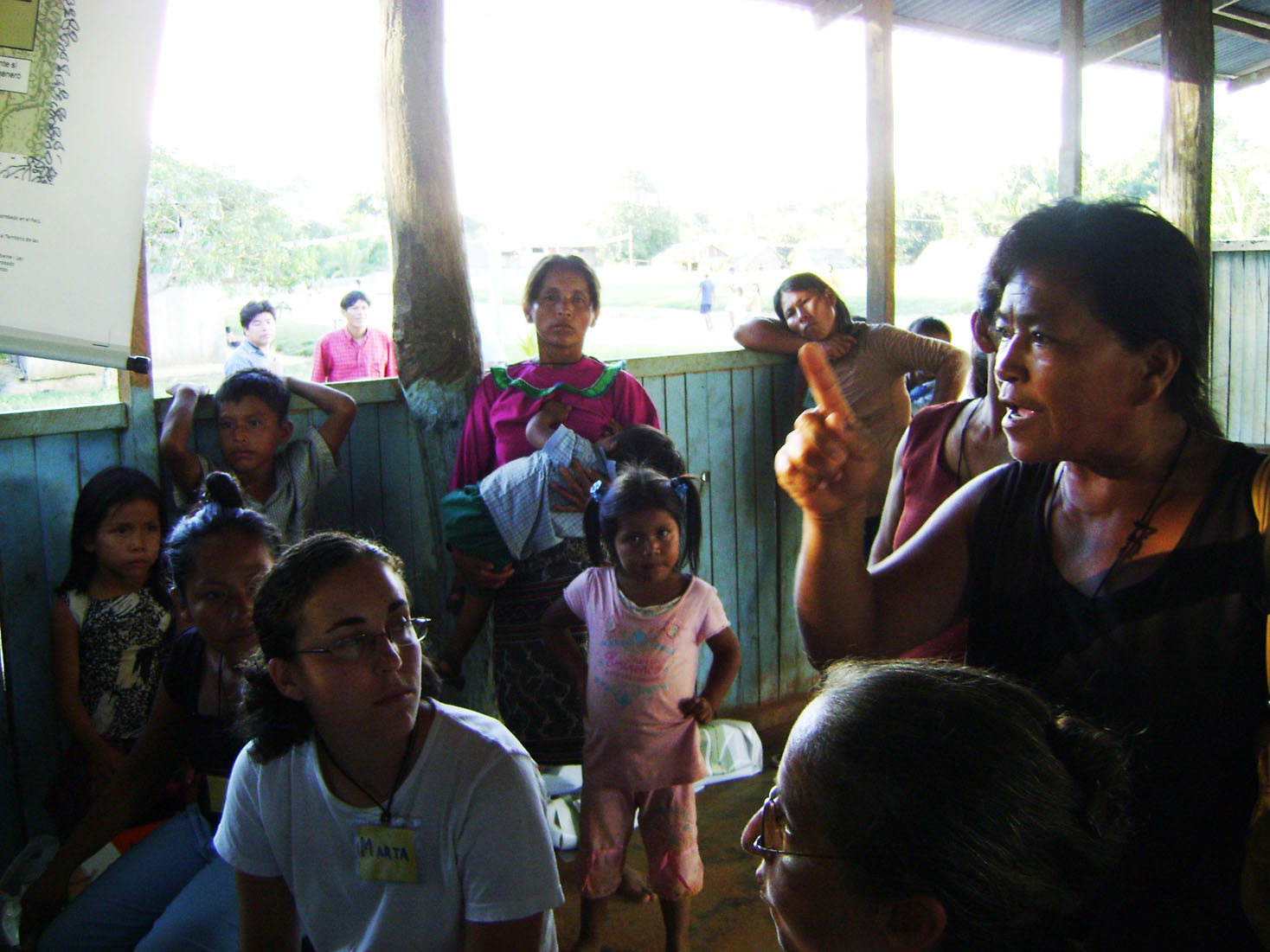- Regional, national, and sub-national indigenous organizations send their comments to the IDB.
Lima, August 7, 2020.- The Inter-American Development Bank closes the consultation phase on the second draft of its socio-environmental policy. Law, Environment and Natural Resources (DAR), Coordinator of the Indigenous Organizations of the Amazon Basin (COICA), Inter-Ethnic Association for the Development of the Peruvian Forest (Aidesep) and its national bases, as well as social movements such as the General Confederation of Workers of Peru (CGTP), national and international civil society organizations and regional coalitions have submitted their comments to the bank, hoping that its new socio-environmental policy guarantees human rights and protects the environment.
This in the midst of what will be an aggressive investment promotion to reactivate the economy due to COVID-19 in the region, one of the hardest hit by acts of corruption in recent years, the most dangerous for those who defend the territory, like indigenous peoples. A region where it is no coincidence that the increase in socio-environmental conflicts is linked to the overlapping of infrastructure and extractive investment projects over protected natural areas, indigenous territories, and reserves for indigenous peoples in isolation and initial contact.
For this reason, it is surprising that given the current situation, there are no safeguards to face the expansion of COVID-19 and the crisis that is being generated, especially in provisions to protect and attend to the most vulnerable populations, such as indigenous peoples. and peoples in isolation and initial contact (in Peru there are already 58 infected from the Nahua people), who do not have specific care plans (health, educational, economic) of the States of the region, or relationship protocols, which means also respond to a post-pandemic strategy and catalyze resources for it.
THE VOICE OF THE INDIGENOUS PEOPLES OF THE REGION
Indigenous organizations such as COICA, AIDESEP, and their national bases such as the Machiguenga del Río Urubamba Council COMARU), the Regional Organization Aidesep Ucayali (ORAU) and the Regional Organization of Indigenous Peoples of the East (ORPIO) sent their recommendations to the IDB emphasizing respect their territorial rights and ways of life. Furthermore, they required the express inclusion of indigenous legal systems and the adequate regulation of their rights to consultation and free, prior and informed consent. Likewise, they requested the express recognition of the right of indigenous peoples in a situation of isolation and initial contact to the intangibility of their territories and to carry out activities to take advantage of resources – and other ancestral activities – in different areas.
The inclusion of the right to prior consultation of indigenous peoples in a credible manner to the content of ILO Convention 169 and to the UN Declaration on the Rights of Indigenous Peoples, as noted above, is one of the highest priorities. Another concern in the draft safeguards is that the right to indigenous identity is diminished, due to the concept proposed by the IDB by indigenous peoples, detailing a series of requirements contrary to international standards. For what they demand that their right to identity be respected through a regulation in accordance with Article 1 of ILO Convention 169 – regarding who can be considered as indigenous peoples – and demanded that the IDB establish clear commitments and obligations within its Framework of Environmental and Social Policies (MPAS).
THE VOICE OF CIVIL SOCIETY AND THE REGION
Law, Environment and Natural Resources (DAR) and the Center of Studies for Labor and Agricultural Development (CEDLA), as members of the Coalition Regional for Transparency and Participation, collective and IDB Working Group , the CGTP and Civil society organizations in the region such as Fundar, the Center for Analysis and Research have continued to monitor this process, presenting observations on each of the performance standards, emphasizing those on labor rights, consultation and consent of indigenous rights, on environmental assessment mechanisms, among others. In addition to reiterating the context through which the region passes, and on which the IDB does not show a reflection adapting its environmental and social norms to the needs, demands and threats that Latin America is experiencing, due to the intensification of investments with low standards.
DAR, as mentioned in its previous communiqué, recommends and emphasizes the incorporation expressly – and with effective mechanisms – of the standards recognized in international instruments; the requirement that the IDB eliminate its regulation based on declarative measures and establish clear obligations; that commitments on climate change cover not only the States but also the IDB; to guarantee the safety and integrity of indigenous peoples by recognizing the right to free, prior and informed consultation and consent; and the adaptation of its regulation on the right to work and working conditions based on the international standards of international instruments such as ILO conventions and recommendations whose central axis is the recognition of the dignity of the worker.
In the current context, the IDB has the challenge of being a benchmark that bets on sustainable investments and respect for rights, which is exacerbated by the change of presidency where the intention is to change the tradition that it comes from Latin America to ensure the interests of the region.
Access communications from indigenous organizations and civil society:


